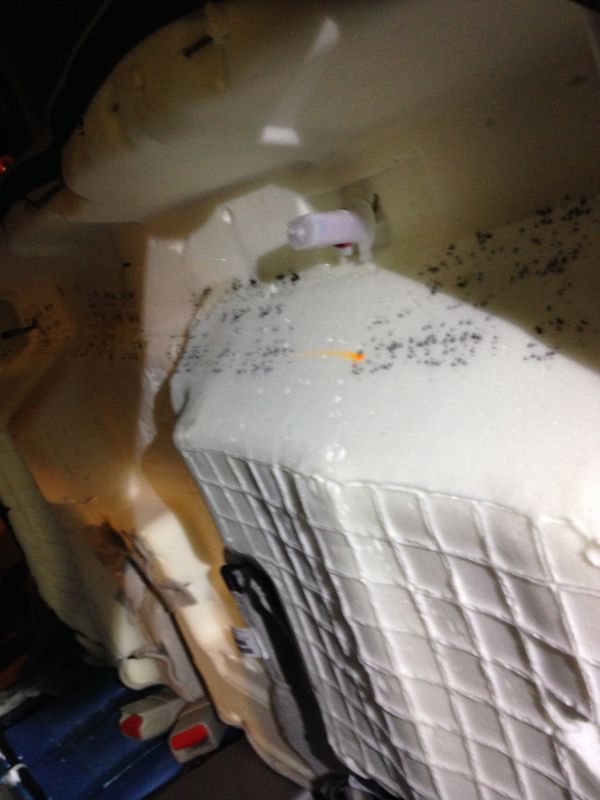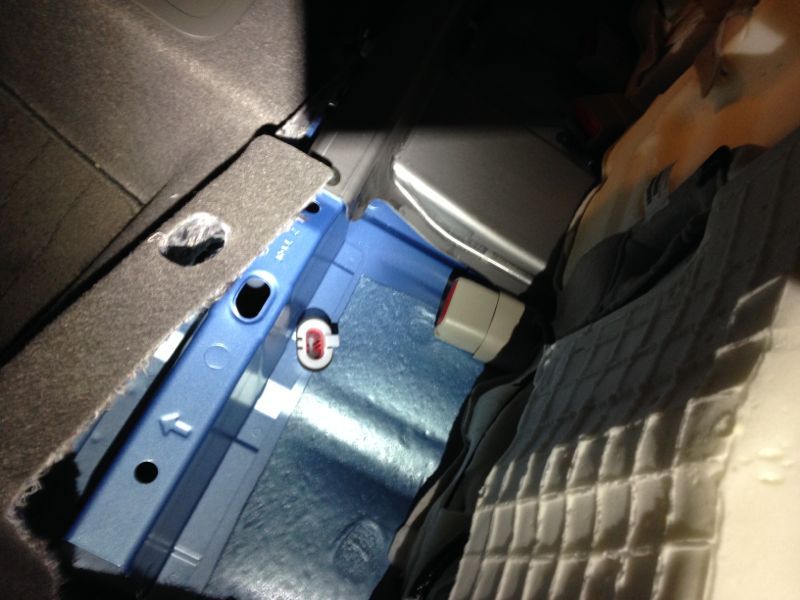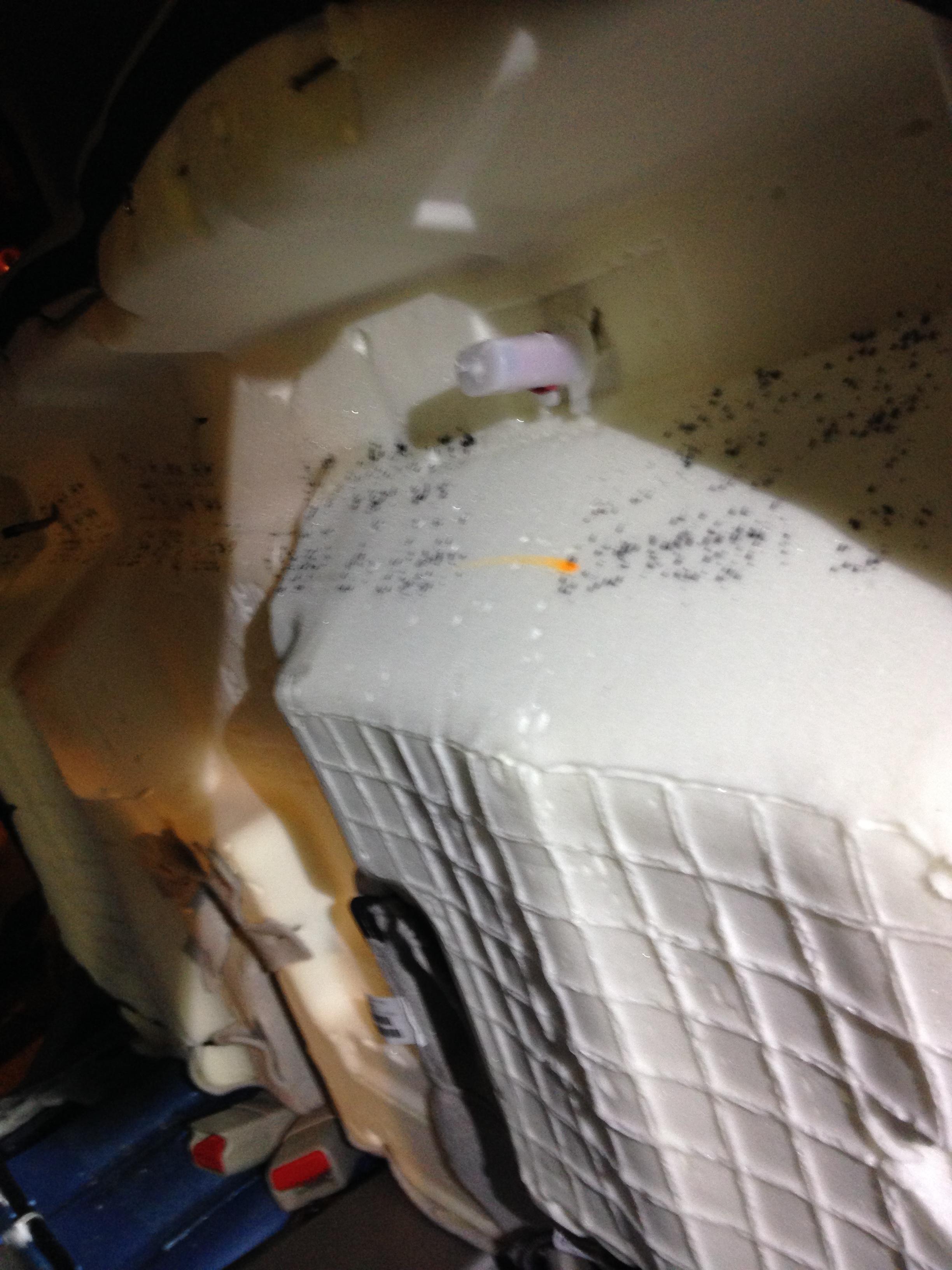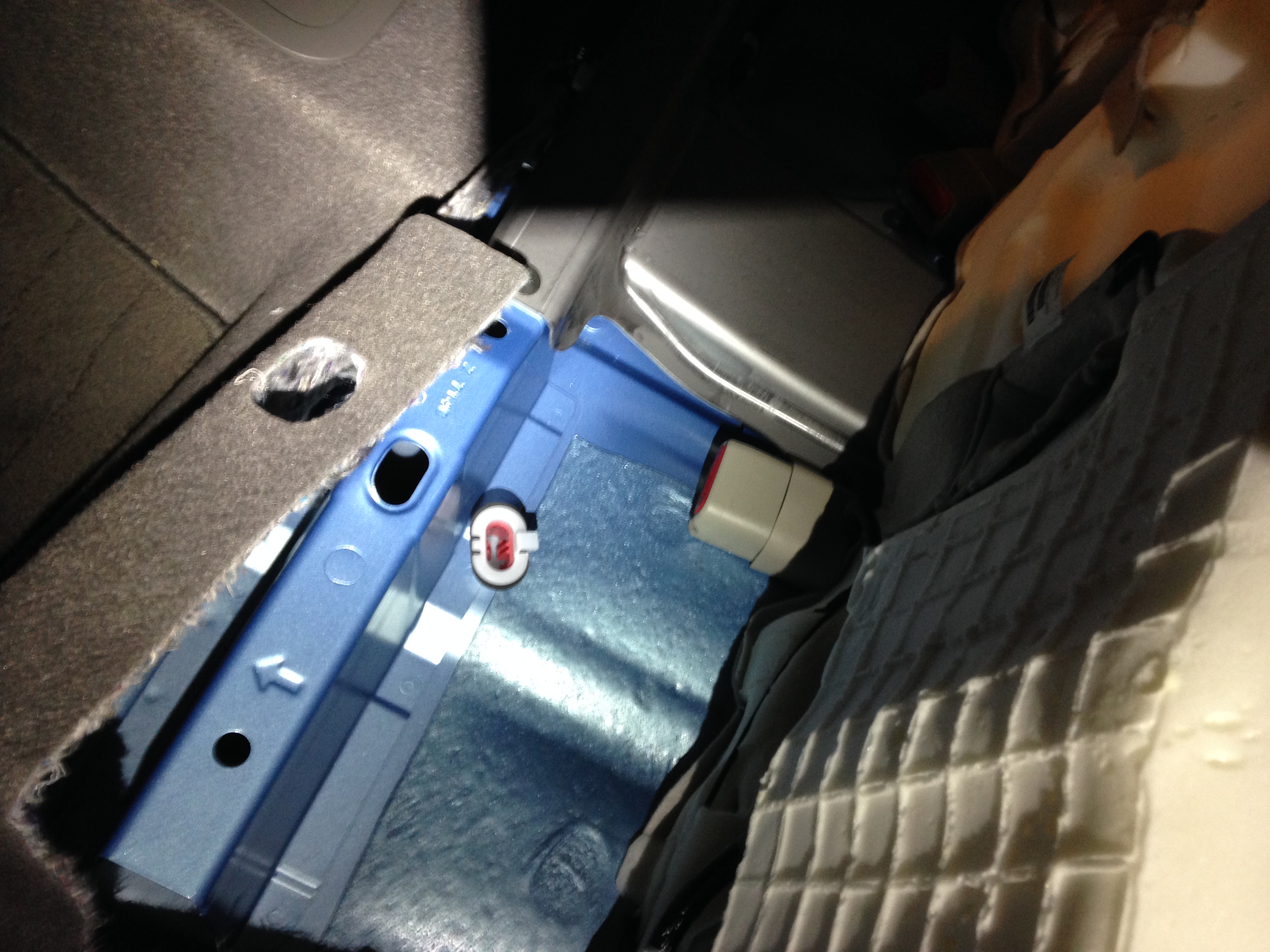motco
Active member
Thanks nateads, that would be useful. 

Orbiter2006 said:... Problem is that I cannot get the rear seat up. They say it is mounted with two loops that should click out. Don't want to put too much force on it.
Has any one got the rear seat up and looked under this lid for the parking brake cable ?
Nubo said:Just removed the rear seat cushion in my 2015, to install a seat cover.
What a pain!!
There are several problems.
1 - Wheras the 2012 rear seat had some rigidity, the 2015 "rear cushion" has no real frame strength.
2 - The clips hold with tremendous force.
3 - the metal loops are wrapped with cloth adhesive tape. This may ruin whatever chance the clip had of releasing.
4 - there is no way to get any kind of tool involved to press in on the tabs that hold the clips in place
It's difficult to remove without damaging the clips, the holes they fit into, or the seat itself.
Here's a picture of the underside of the seat. The receiving clip is still attached to the metal loop It just wouldn't let go. Now that it's exposed I can push in the tabs to remove it.

Here you can see the frame hole where the clip is supposed to reside. You can see the hole is distorted a bit. That's how hard I had to pull to get a release. Next to the hole is the clip from the passenger side, which finally did let go of the metal loop after some wrasslin'.

There's no way to get at the clips to make them release. On the driver's side I was able to get the thing to pop out by grabbing both the front of the seat directly in front of the clip, and also the rear of the seat and pulling up from both ends finally got it. It took a LOT of force. I'm probably going to have to bend the cushion back into shape a bit and also have to tap that hole back into shape.
On the passenger side I finally got it out by kneeling outside the car, snaking my arm along the top of that ridge, wrapping my hand around where the clip was and then lever-ing it out.
Were I to try this again I think I'd tie a rope into a noose, get it fished around the clip, cinch it down and the pull up with that from the front side of the seat. This would concentrate the force right at the clip interface. There just isn't enough strength in the seat itself to transmit force effectively.
Dammit Nissan, why did you make it so hard? People do want to put on seat covers occasionally!


LeftieBiker said:What about one of those fork-like clip release tools? It might accomplish the same thing as the rope noose.
motco said:Following advice from another Leaf owner I drove along our road for about a quarter of a mile with the parking brake partly applied. Next time I parked I used the parking brake and when I reversed... blessed silence!
Time will tell how long this remedy works for and I shall report accordingly.
powersurge said:motco said:Following advice from another Leaf owner I drove along our road for about a quarter of a mile with the parking brake partly applied. Next time I parked I used the parking brake and when I reversed... blessed silence!
Time will tell how long this remedy works for and I shall report accordingly.
You should not be applying brakes for long distances because you don't know how hot the brakes will get.
There is no such thing as silent brakes in the real world. When the car sits for a few days, and it rains, the rotors will make some noise until you wear off the coating of rust that got on them.... That is normal
Are the brakes ok when you go forward? If yes, then you are fine. My brakes make some rubbing sound and some squeak when I go in reverse from my driveway every day... That is normal due to the direction of the wheels turning and the orientation of the brake pads.
Do not make this an area that requires a repair.....
motco said:Following advice from another Leaf owner I drove along our road for about a quarter of a mile with the parking brake partly applied. Next time I parked I used the parking brake and when I reversed... blessed silence!
Time will tell how long this remedy works for and I shall report accordingly.
Virtuallydead said:motco said:Following advice from another Leaf owner I drove along our road for about a quarter of a mile with the parking brake partly applied. Next time I parked I used the parking brake and when I reversed... blessed silence!
Time will tell how long this remedy works for and I shall report accordingly.
1/4 mile is surely not enough.
That was good for only about two weeks of (complete) silence for me.
Last week I did 2-3 km in my subdivision using only the Pbrake at intersections
Wheelhubs felt only just above lukewarm.
It's a full drum brake setup in there, just mechanically operated instead of hydraulically. It can take lots 'o heat.
Let's see if this makes a better long term difference. That squealing first thing in the morning is not how I like to wake up.
motco said:Following advice from another Leaf owner I drove along our road for about a quarter of a mile with the parking brake partly applied. Next time I parked I used the parking brake and when I reversed... blessed silence!
Time will tell how long this remedy works for and I shall report accordingly.
Nubo said:motco said:Following advice from another Leaf owner I drove along our road for about a quarter of a mile with the parking brake partly applied. Next time I parked I used the parking brake and when I reversed... blessed silence!
Time will tell how long this remedy works for and I shall report accordingly.
This is interesting. But in my case I can modulate the squeaking with brake pedal pressure so I'm not sure how that would translate to parking-brake pad squeal. Sounds worth a try though; I can't imagine destroying the linings with a bit of mild braking.
Enter your email address to join: